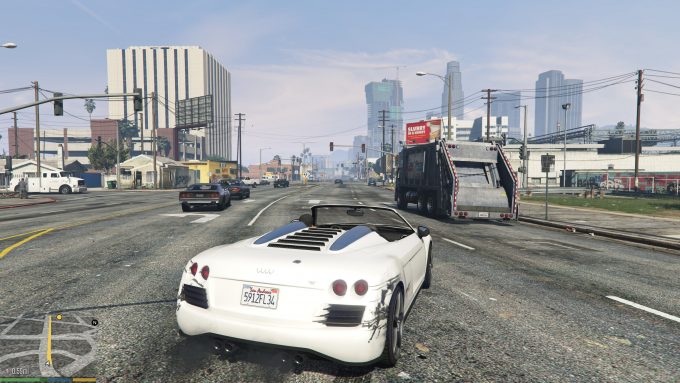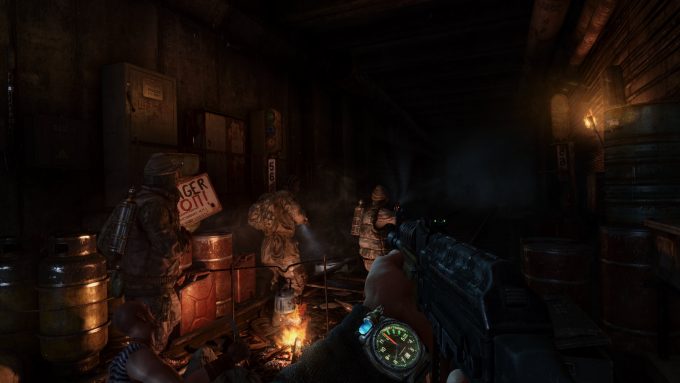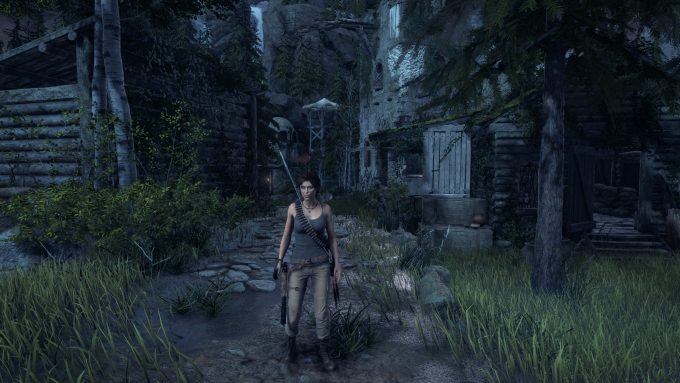- Qualcomm Launches Snapdragon 4 Gen 2 Mobile Platform
- AMD Launches Ryzen PRO 7000 Series Mobile & Desktop Platform
- Intel Launches Sleek Single-Slot Arc Pro A60 Workstation Graphics Card
- NVIDIA Announces Latest Ada Lovelace Additions: GeForce RTX 4060 Ti & RTX 4060
- Maxon Redshift With AMD Radeon GPU Rendering Support Now Available
Sub-$150 Pascal: NVIDIA GeForce GTX 1050 & GTX 1050 Ti Review

Since the first Pascal release this past spring, NVIDIA has rolled-out a handful of high-end (and really high-end) GPUs, so now, it’s time to get the low-end settled. That’s fulfilled with the release of the GeForce GTX 1050 and GTX 1050 Ti – both 75W parts. Priced at $109 and $139, respectively, both cards target the 1080p resolution. Let’s see how they fare against each other, and AMD’s Radeon RX 460.
Page 3 – Tests: Grand Theft Auto V, Metro Last Light & Rise Of The Tomb Raider
Grand Theft Auto V
Does a game like this even need an introduction? Any Grand Theft Auto game on the PC is a ‘console port’, proven by the fact that it always comes to the PC long after the consoles, but Rockstar has at least done PC gamers a favor here by offering them an almost overwhelming number of graphical options to fine-tune, helping to make it suitable for benchmarking, especially at high resolutions.
Testing: The mission Repossession is chosen for testing here, with the benchmark starting as soon as our character makes his way to an unsuspecting car. The benchmark ends after a not-so-leisurely drive to a parking garage, right before a cutscene kicks in.
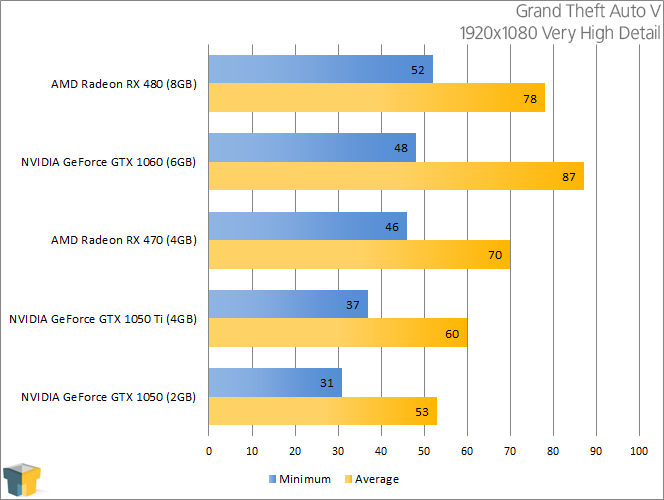
GTA V was kind to both of the new NVIDIA GPUs, but the same can’t be said for AMD’s RX 460, which couldn’t run the game at our usual settings without hard-locking the entire PC. That said, we’re using super-high settings here, so it wouldn’t take much effort to make it fully playable on that GPU. Again, due to time, I was unable to tackle that in time for this article, but plan to soon.
Metro Last Light Redux
Like a couple of other games in our stable, Metro Last Light might seem like an odd choice give its age. After all, the original version of the game came out in 2013, and its Redux version came out in late 2014. None of that matters, though, as the game is about as hardcore as it can get when it comes to GPU punishment.
Testing: The game’s built-in timedemo is used for testing here, which lasts 2m 40s. While the game can spit out its own results file, it’s horribly inaccurate, so Fraps is still used here.
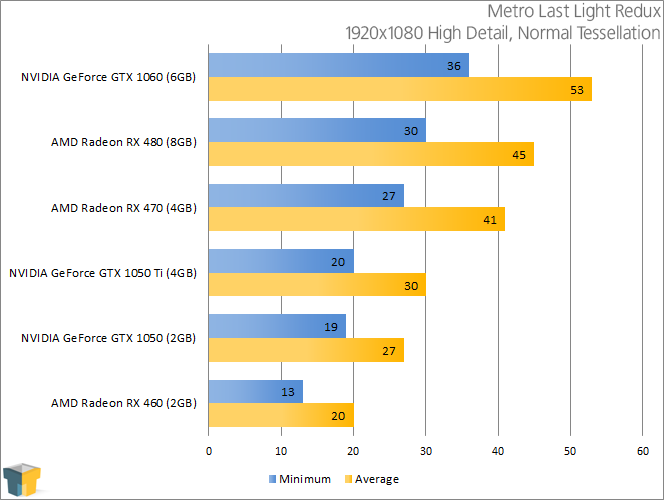
Metro Last Light Redux is hardcore on all three of the GPUs in this segment; even the 1050 Ti struggled to hit 30 FPS. The framerates can be improved all around with some tweaking, but I am not confident that huge gains could be accomplished as we’re already not using top-end settings like we do for most games here. This game is simply brutal. Even the big boy GTX 1060 couldn’t hit 60 FPS.
Rise Of The Tomb Raider
Lara Croft has sure come a long way. The latest Tomb Raider iteration becomes one of the first titles on the market to support DirectX 12, but even without it, the game looks phenomenal at high detail settings (as the below screenshot can attest).
Testing: Geothermal Valley is the location chosen for testing with this title, as it features a lot shadows and a ton of foliage. From the start of our saved game, we merely walk down a fixed path for just over a minute and stop the benchmark once we reach a broken down bridge (the shot below is from the benchmarked area).
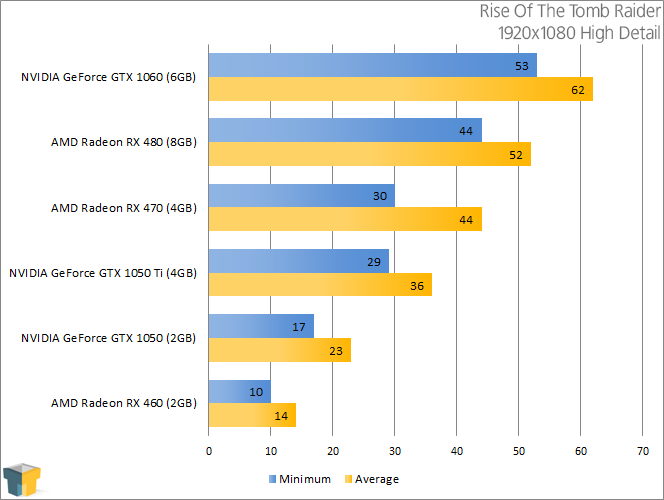
RotTR is a perfect example of why a 2GB framebuffer is too small in 2016, even if we’re just dealing with 1080p. Both the GTX 1050 and RX 460 struggled hard with this title, with the Ti proving 13 FPS better than the non-Ti. Similar to Metro, you’re likely going to have a rough time achieving 60 FPS here, but to repeat what I said earlier: it’s probably best to not even consider 60 FPS a target.
Support our efforts! With ad revenue at an all-time low for written websites, we're relying more than ever on reader support to help us continue putting so much effort into this type of content. You can support us by becoming a Patron, or by using our Amazon shopping affiliate links listed through our articles. Thanks for your support!




